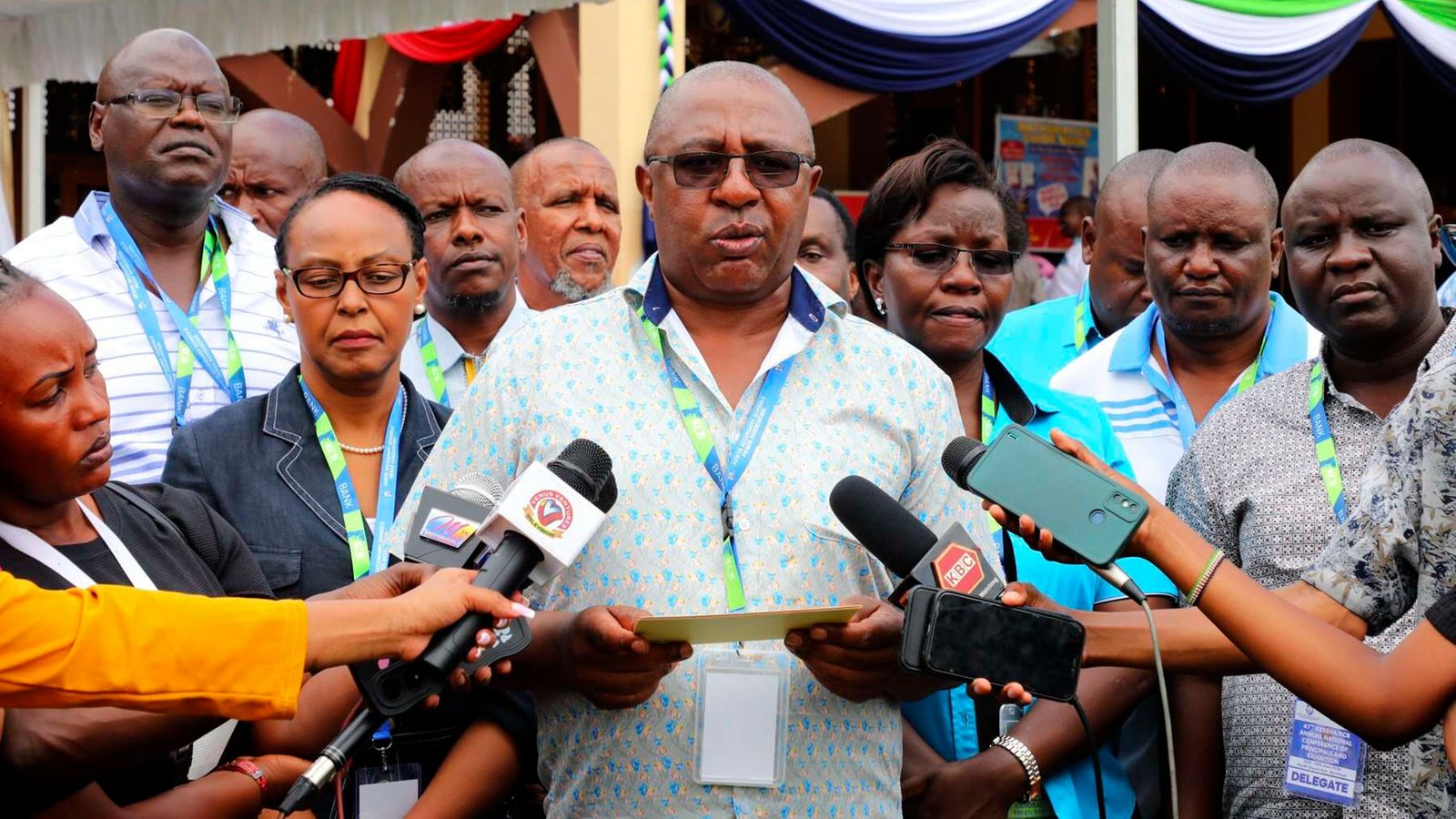Secondary school principals have expressed dissatisfaction with the Teachers Service Commission’s (TSC) promotion process, saying it disadvantages teachers in some regions.
Through the Kenya Secondary Schools Heads Association (Kessha), they have petitioned the TSC and the National Assembly, calling for a review of the quota-based system.
The principals argue that the system limits opportunities for teachers in areas with many qualified candidates while benefiting regions with fewer eligible applicants.
The petition follows the TSC’s advertisement of 19,943 promotional positions last year, with interviews held in January 2025.
“A quota-based system will lead to a situation where teachers in certain regions are at a clear disadvantage by unfairly reducing opportunities for qualified teachers from regions that have a higher number of competent and deserving candidates," reads a letter signed by Kessha chair Willy Kuria.
In turn, it unduly favors candidates from other regions with fewer qualified teachers, even if they have fewer years of experience and lower performance ratings.”
Speaking to Nation, Kuria said they turned to the Education Committee of the National Assembly after the TSC failed to address their concerns.
He claimed some teachers were invited for interviews before completing the required six-month period in their job group.
“We easily got the information from the county directors and when we complained and wrote to the TSC, they never disputed the information. This was mainly favoring ASAL areas,” he remarked.
He also noted that many teachers seeking promotion to Job Group Deputy D2 and below were left out of the process despite meeting the qualifications.
“The foregoing happened in some regions while in others, that consideration of six months was made and the teachers were shortlisted. The upshot of that is that it will result and accord advantages to some regions while drastically disadvantaging others in what can correctly be surmised as marginalizing some regions,” said Kuria.
He cautioned that if not addressed, this trend could cause teachers to remain in the same job groups based on their work location.
“A promotional interview should prioritize merit, experience, and individual achievement. The imposition of a regional quota system undermines these principles by promoting teachers based on their geographical position,” the petition states.
Mr. Kuria urged the TSC to find fair ways to promote inclusivity and diversity. “We urge the TSC to communicate the criteria and qualifications expected and adhere to them to avoid giving a false sense of hope to the applicants,” he said.
Teacher promotions have been a challenge due to financial constraints, leading to stagnation in job groups.
Recently, the Kenya Union of Post-Primary Education Teachers (Kuppet) called on the TSC to publish a list of all teachers eligible for promotion in the 2024-2025 cycle.
The union also called for a fair distribution of vacancies, arguing that the current system allocates positions equally across all 47 counties without considering teacher population differences.
“Given the disparities in staffing levels across the country, such distribution is inherently flawed and unfair to many teachers. A county which has over 11,000 teachers has been allocated the same number of vacancies as another with just 1,000 teachers," said Kuppet acting secretary-general Moses Nthurima.
"The clear implication is that a teacher in the smaller county is 10 times more likely to get promoted compared to his or her counterpart in the more populous county.”
